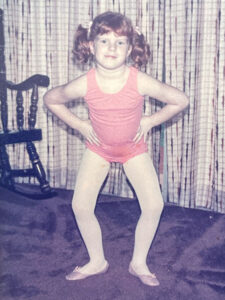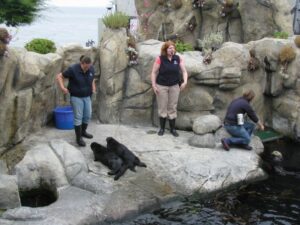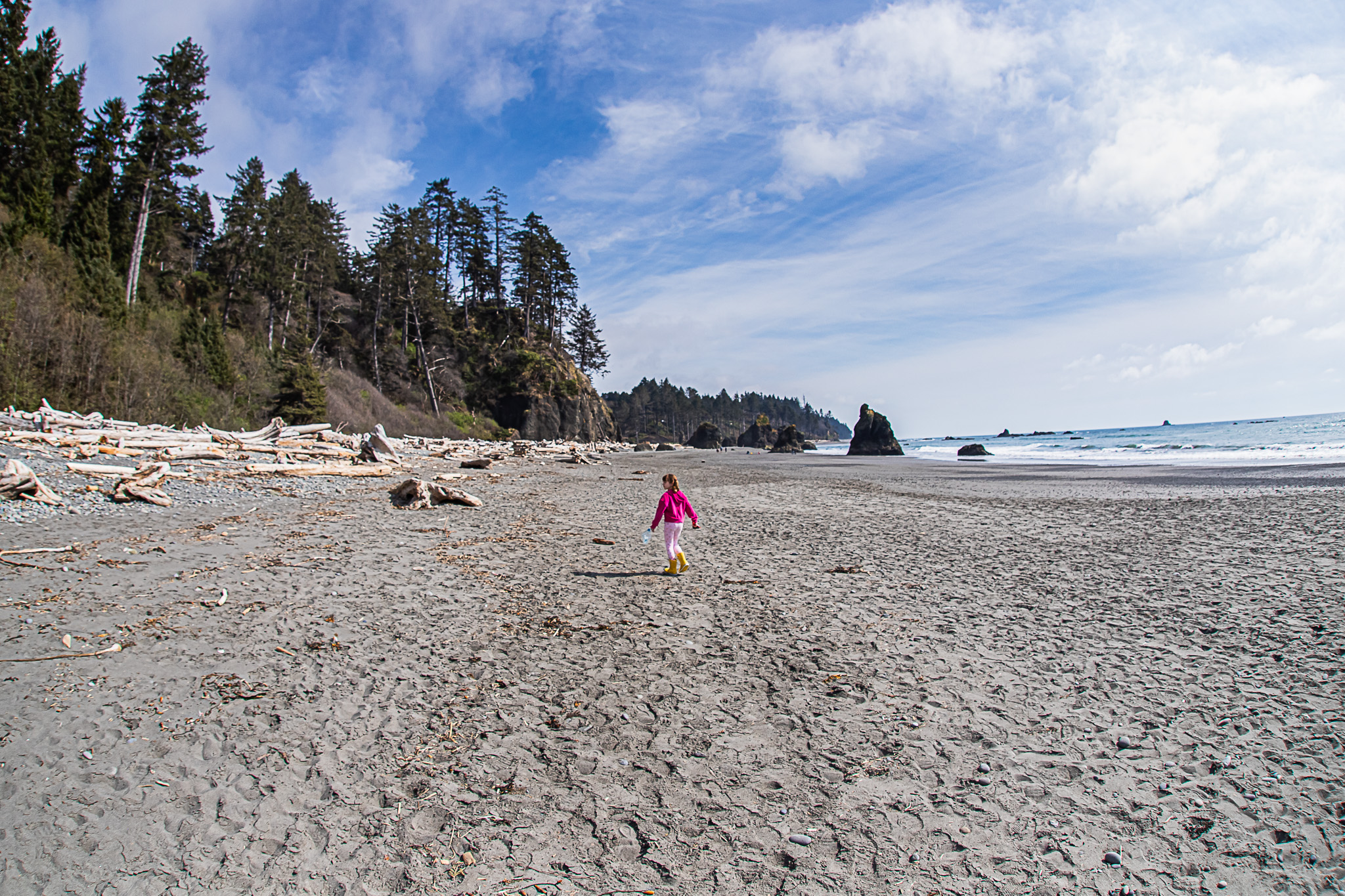
What do YOU want to be when you grow up?
When I was five years old, I thought I had it all figured out. Like most little kids, I had a big imagination and even bigger dreams. I spent my days playing with classic childhood toys of the ’80s, learning valuable skills like perfecting a quality Care Bear Stare or identifying each Strawberry Shortcake doll based on smell alone, but I also took time to contemplate life’s bigger questions.
I thought about important things like “what’s for dinner” or “where did my red hair come from,” a question that I was frequently asked by well-meaning and curious strangers. My response, by the way, was usually that it came from a strawberry, or a tulip, until my parents told me to say recessive genes – which was effective in shutting down further questions immediately. I must admit, my young mind was rather baffled as to what pants had to do with my curly red locks, but I figured my parents must have known something that I didn’t.
When presented with the iconic question of “what do you want to be when you grow up”, kids often say things like fireman, doctor, teacher, sports player, or ballerina.
 Like many little girls, I also wanted to be a ballerina, but my ambition didn’t stop there. No, I had figured out that I could have two jobs! I decided that at night, I would be a ballerina adorned head to toe in layers of pink tulle, dancing beautifully across the stage. By day though, I would be…a grocery bagger! I would scan all kinds of delicious foods, get to play with a conveyor belt, AND pack things into bags again and again all day long! I also figured that by working two jobs, I would make enough money to be rich! Tutus, toe shoes, and amazing ballet moves, mixed with the rhythmic beeping of scanned groceries and the keen satisfaction of a masterfully filled paper bag – what could be better?
Like many little girls, I also wanted to be a ballerina, but my ambition didn’t stop there. No, I had figured out that I could have two jobs! I decided that at night, I would be a ballerina adorned head to toe in layers of pink tulle, dancing beautifully across the stage. By day though, I would be…a grocery bagger! I would scan all kinds of delicious foods, get to play with a conveyor belt, AND pack things into bags again and again all day long! I also figured that by working two jobs, I would make enough money to be rich! Tutus, toe shoes, and amazing ballet moves, mixed with the rhythmic beeping of scanned groceries and the keen satisfaction of a masterfully filled paper bag – what could be better?
I don’t want to shock you, but today I am neither a ballerina nor a grocery clerk, though I do frequently still bag my own groceries. It turns out, you have to study dance for years to be a prima ballerina, and while I have spent time both as a child and an adult taking the occasional dance class, I’m usually the one in the back. Thankfully, I have cultivated many other skills and talents over the years, which has allowed me to pivot and pursue other career options.
What the Heck is That Job?
It turns out that my story is, at the surface, a lot like that of many other adults.
Kids are very good at dreaming up big futures, but if you ask adults if the career dreams of their childhood came true, many would say no, or at least not in the way they thought.
According to a recent survey of 2,000 adults conducted through the site trade-schools.net, almost 80% of adults don’t end up following the career paths envisioned by their younger selves.
It’s funny, because when kids are asked to consider what career they will pursue, the answers are often simple, easily identifiable jobs. However, I’d like you to take a moment and imagine the job titles and positions you’ve had. Now think about the jobs held by your friends and family. Be honest, are you actually able to explain what even half of your friends really do? Nowadays we might have job titles like Account Executive, Data Services Specialist, Non-Profit Administrator, or even Best Boy or Key Grip.
In my life alone I have been a:
- Maid and Dishwasher (or my favorite: “Hydroceramic Engineer”) for a bed & breakfast
- Camp Counselor
- Youth Counselor for a major cruise line
- Musician/Actor who actually gets paid
- Piano Teacher
- Substitute Teacher
- Sr. Enrollment Specialist
- College Professor
- Program Specialist
- Coordinator of Theatrical Interpretation
- Manager of Public Programs
- Freelance Writer and Documentary Photographer
- Entrepreneur
Now, how many of those jobs could you decipher just by the title alone? Not too many I imagine. But I bet if you knew more details about them, you might be surprised by the fact that they even exist.
 In 2008, I received a Master of Arts in Teaching in Museum Education from The George Washington University. Shortly thereafter, I went to work for the Monterey Bay Aquarium, where I spent a decade presenting, creating, training, and evaluating conservation-based marine science programs for audiences of all ages. During that time, I interacted with thousands of visitors, many of whom assumed I was a college student and were then subsequently shocked to learn that a master’s degree in museum education even existed, and that it was an entire career field with jobs available in museums all over the world.
In 2008, I received a Master of Arts in Teaching in Museum Education from The George Washington University. Shortly thereafter, I went to work for the Monterey Bay Aquarium, where I spent a decade presenting, creating, training, and evaluating conservation-based marine science programs for audiences of all ages. During that time, I interacted with thousands of visitors, many of whom assumed I was a college student and were then subsequently shocked to learn that a master’s degree in museum education even existed, and that it was an entire career field with jobs available in museums all over the world.
Do you have the job you thought you’d have growing up?
Research shows that the average person spends roughly 90,000 hours, or about 10.3 years, of their life at work. In a typical full-time job, employees spend 40+ hours a week. Or in other words, most of their waking hours they work at their jobs. The question is, how many people look forward to going to their job every morning and are passionate about the work they do on a daily basis?
How many people are simply punching the clock for a paycheck and checking the box of a career they were told to follow? And lastly; how many people would have liked to pursue a different career path if they’d only known it was an option?
6 Unconventional Tips to Decide What You Want To Be When You Grow Up
Imagine for a moment that you’re a child again and someone asks you what you want to be when you grow up. If you were to respond with “I want to be a chef!” for example often the conversation ends there, but what if it didn’t?
What if it went something more like this?

Adult: Oh, a chef that’s a great job. What are your favorite foods to eat or make?
Child: Well…I really like to make cakes and cookies with my family, but I also love to eat spaghetti and meatballs!
Adult: Those are pretty delicious foods. Did you know that there are different kinds of chefs, and that some of them ONLY make dessert?!? Those are called pastry chefs, and they get to create all kinds of delicious treats every day.
Child: Whoa! I wanna do that.
Adult: I know, right?! And spaghetti and meatballs are Italian food. Italy is a country in Europe where chefs make all kinds of delicious pastas to eat. You can even go study there and learn how to do that too.
Child: Cool!

Or maybe for an animal-loving kid, there could be a conversation along these lines:
Child: When I grow up, I want to take care of animals.
Adult: That’s a great idea! There are so many ways you can do that. What are your favorite animals?
Child: I love my dog, but I also really like cheetahs and elephants.
Adult: I really like those animals too. There are lots of jobs for people who want to be involved with animals. You could work at a shelter helping animals find homes, or become a veterinarian taking care of sick animals. You could become a teacher and work in a zoo, educating visitors about animals and how we can take care of them. Or, you could even go out into the wild as a scientist, taking pictures and making observations about animals in their natural habitat.
Child: That’s awesome. I want to do all of those things!
Now imagine that the conversation doesn’t stop there. What if there were resources and guideposts throughout one’s childhood to keep those conversations evolving, continuing to spark that flame of curiosity about all of the options beyond the obvious choice?
What if instead of choosing a path that only leads to a paycheck, resulting in years of your life spent doing something that maybe isn’t the right fit, you instead walked boldly through door number three to discover a whole host of experiences and careers you never knew existed? What would the world look like then?

The United States has been called the “Land of Opportunity” for years, and in some ways, it certainly can be. But often that opportunity comes with a narrow focus. The trajectory typically unfolds like this:
- Study hard in school so you can get into a good college, preferably with a scholarship
- Do well in college so you can get a good job, preferably one with a good paycheck
- Establish your career and then get married (or not) and have kids (or not)
- Work hard and put away money for retirement
- Retire, and start living the life you’ve always wanted
Of course, there are other steps that can and do happen along the way, but those five milestones and goals have been the American way for many citizens, for decades. In reality, there isn’t anything wrong with any one of those milestones; and in fact, some of them are pretty great.
But what if there was a better way to reframe our thinking? What if we followed a different set of milestones that allowed our children, friends, and colleagues to shift their paradigm, writing a new story and embracing a wider world of possibility? How differently would you tell your story?
Imagine if our goals and milestones looked a little more like this:
- Boldly learn and try new things on a regular basis
- Seek inspiration, reflect on what you want out of life, and ask questions
- Don’t be afraid of failure, embrace it, and learn from it
- Find a job that makes you happy, and know that it’s OK to make a change if it doesn’t
- Surround yourself with people that support you and help you grow
- Make sure that you are able to retire the way you want, but don’t wait until retirement to live your life
Now let’s break down each of these milestones a little more.

1. Learn and Try New Things
One of the greatest things about being human is our unlimited capacity to learn and grow.
Often, we equate learning with school, but while formal education is incredibly important and valuable, we do an enormous amount of discovering and processing new information before we even get to school. We also have decades of learning opportunities available to us once our formal education is complete. The practice of gaining knowledge and skills can sometimes feel like a burden, especially if it is something that doesn’t easily hold one’s attention, but those moments typically only make up a small portion of the learning we do on a regular basis.
With the advent of modern technology, our world has become both very large and very small. It’s easier than ever before to interact with people from all over the world and travel from place to place, which can sometimes make Earth feel much smaller than it is in reality. However, we also have so many more possibilities for obtaining information, making connections, and trying new things. While that can be overwhelming, it can also be inspiring. Our world is full of possibilities if you just take time to look for them. With the right mindset, that voyage of discovery can be thrilling and filled with joy.
Learning is joyful. It’s exciting, and it can and should be fun. As an educator, I believe that if someone is joyful and having fun while learning, then they will likely remember the content better. When we are excited about learning, we are compelled to share our knowledge with others, and that excitement and connection often leads to a continued desire to learn and grow. This mindset naturally occurs in very young children, and with care and attention, can be cultivated throughout a person’s entire life.
Studying hard and doing well in school can certainly be a necessary part of life. But, if you adopt a growth mindset and develop a passion for learning new ideas and experiencing new things, it will serve you far beyond the years you spend in school.
2. Seek Inspiration and Reflect

We all seek inspiration from time to time, but making it a part of your daily practice means that you have a continuous flow of creative energy that will benefit you in all aspects of your life. The world is an inspiring place, and there are marvelous things to discover every day.
Inspiration is all around us and can be experienced in a multitude of ways. For some, it means diving deep into a topic, processing as much information as possible, then finding that inspirational spark and using it as a springboard to new ideas. For others, it can be found in moments of quiet contemplation or amongst the bustling activity of our day-to-day existence. There is no right or wrong way to be inspired, but regardless of where it comes from, it is something that happens to all of us throughout our lives.
The process of seeking inspiration coupled with a zest for learning is a powerful combination. Equally as important, though, is allowing the time for reflection and self-discovery.
Many of us lead busy lives filled with distraction, and it can be very alluring to follow the seemingly easy path of leading the life we think we should, or the life and job others want for us. But, if we take the time and space to reflect on our experiences and to ask questions, we can grow confident in our desires and move forward in amazing new ways, even if they stray from more traditional ideas.
3. Embrace Failure
There is no such thing as perfection, though we all strive for it in different ways. There is tremendous value in working hard and setting and achieving goals, but even the most perfect results have imperfections. Even the best intentions and efforts can fail sometimes.
Everyone makes mistakes. It’s a fact of life, but we often spend more time hiding from our errors, than accepting and learning from them. It can be hard to shake the fear of being embarrassed or stupid, or even getting into trouble. It’s never pleasant to screw up, but making a mistake is a universal experience to which everyone can relate no matter what career they pursue.
Typically, when a mistake is made, the message that we teach is often “mistakes are OK, but try not to make the same mistake twice,” but how that is often translated in our so-called “monkey mind” is “don’t mess up, or else you’ll get into trouble!” But what if we changed that narrative to something more like “mistakes are ok, but what did you learn from that experience and how will it help you grow?”
Some of the greatest inventions and advancements to society happened because of a mistake.
You usually don’t achieve a quality end result without making mistakes, even significant ones, along the way.
Over the past 10 years, I have attended many conferences, and some of my favorite sessions have been about mistakes. At the American Alliance of Museums conference there is a session every year called “Mistakes Were Made,” and it features museum leaders sharing some of their biggest oops moments and then inviting session attendees to share theirs. In fact, that interactive process is turned into a competition each year for the best, worst mistake, with the prize being a spot for the winner on the following year’s panel. Not only are some of the stories hilarious, it can also be very cathartic to hear the mistakes of others, because it helps create a more acceptable mindset for the act of making an error. But it can also help you realize that maybe the mistakes YOU have made in the past aren’t that bad!
Failure is a natural part of life. It is a big scary word that will happen to all of us at some point, but the more we embrace it, the more we are able to take the fear away and normalize it as an opportunity for growth.
Don’t be afraid to fail. Don’t be afraid to make the wrong choice.
If you choose a job or career that doesn’t work for you, change the narrative and find something better.
4. It’s OK to Like Your Job
As I mentioned earlier, we spend a lot of our waking hours at work, so it only makes sense to pursue something we actually enjoy. That doesn’t mean you have to like everything about your job, but the positives should outweigh the negative. A job should be something that gives you some level of personal satisfaction with goals you can strive for and efforts that are appreciated, acknowledged, and useful to others. Of course, there are sometimes circumstances that can cause us to take a job situation that is less than ideal, but even that job is an important part of your story. If you do find yourself in a situation like that, have an exit plan. It’s easy to get stuck, but it can be avoided if you map out a reliable and professional roadmap for change, keeping an end goal in mind. Don’t be afraid to ask for help. Life’s too short to stay a long time at a job you don’t like.
In 2018, a Bureau of Labor Statistics report stated the “average person changes jobs 10-15 times during his/her career.” Years ago, this wasn’t this case, and jobs were largely thought to be transactional; whether you liked the work or not, you did it to earn a paycheck. Even now, many people will still use the phrase “work isn’t meant to be fun, that’s why it’s called work.” However, more and more people today expect to find meaning in their work, and many are now seeking a workplace that is enjoyable; one that places a big emphasis on culture and fit.

Let me ask you this: If you had a pair of pants that shrank in the wash, and were one day too small and uncomfortable, would you keep wearing them or would you make the decision to find a new pair of pants that fit better? Sure, these might have been your favorite pants at one time, but things change and it’s OK to shop around and try some other pairs. Who knows, you might just find one that fits in all the right places, makes you feel fabulous, and could end up being the best pair of pants you’ve ever owned. Why should a job be any different?
If it’s not the right fit, and it doesn’t make you feel good, it’s OK to change. Your future self will thank you.
5. Surround Yourself with the Right People for You
Connection is an important part of life. Whether you are an extrovert, an introvert, or somewhere in between, humans are naturally programmed to thrive through connection with others.
This happens in so many different ways, but we all need a support system to succeed. We should strive to have a network of people who support and appreciate our ideas and ignite our creativity, but we should also have people who push and challenge us to grow and learn.
Sometimes a connection happens right away. You find a person or a group who shares your ideas and passions, and you think immediately think “these are my people.” Some connections take more time, and you don’t always appreciate the value of the relationship until much later. Perhaps you had a teacher or mentor who pushed and criticized so much it made you want to scream in frustration on a regular basis, but then one day you realize they were the person who challenged you the most, because they believed in you the most. Those are the people you want in your corner.
We are constantly surrounded by a wide variety of people, and while many of those interactions are positive, there are also many that are not. It’s interesting to reflect on the fact that we spend a lot of time learning how to make friends when we are young, but nobody ever tells you how to end a friendship or a professional relationship that isn’t working anymore when you become an adult. But sometimes, doing that can be one of the most important things you can do for your career and your personal well-being.
Take the time to cultivate the relationships that inspire you. If you find success, pay it forward and be the connection for someone else.
Some of my best professional experiences have happened because of someone taking the time to do something as simple as buy an out-of-work graduate student a lunch, or have a conversation in the middle of a busy conference that yielded one of the best jobs I’ve had in my life. As a result, I always try to help others in the same way, whenever I can. Find your people, make those connections, and the right job will follow.
6. Don’t Wait to Live Your Life
Whether you have a job you love or a job you love to hate, eventually you will want and need to retire. While it is important to save for retirement, it’s equally as important and arguably more so to seize opportunities, creating amazing experiences and captivating stories throughout your entire life.
Sometimes this can mean some tough choices. I’m 40 years old and don’t own a house. I have young kids, and while there’s a big part of me that wishes I did have property of my own right now, I wouldn’t trade the adventures and experiences I have had for any material comfort. Those adventures have helped shape me into the person that I am today, and have helped me learn and grow, teaching me to be a better, more empathetic leader. They help me look beyond what is seemingly normal and push me out of my comfort zone on a regular basis.
If we teach our youth to follow the guidelines and milestones I have listed above, providing them with helpful resources, and committing to challenge and push them along the way, just imagine what our workforce could look like 10-20 years from now. We might still have no idea what anyone’s job title actually means, but I bet we’d begin to see a lot of positive change and a news cycle filled with hope, as opposed to one with an alarming amount of despair.
Even though I didn’t end up being a ballerina/grocery clerk, I often think that kids are the ones who really do have things figured out. If they are lucky, they get to spend childhood learning through play, dreaming about the possibility of the future; and we would all be better for it if we continued those practices throughout our adult lives, instead of frequently leaving them behind when we put our childhood toys away.
The world is an exciting place that holds an infinite number of paths to take, and we are privileged to explore many of them crafting our own unique story.
I consider myself fortunate to have curated a life thus far comprised of unique experiences that have helped me unlock and grow the talents and passions that I have today. Even on the hardest day, I can still close my eyes and feel the thrill of possibility and the anticipation of a new adventure just around the corner.
You are allowed to give yourself permission to let your imagination run wild.

Close your eyes for a minute and imagine that you’re standing in front of three doors, two of which you’ve already opened and gone through, and one that you haven’t. Think about the experiences that you’ve had to date. How have they shaped the story of your life? Take time to appreciate the successes and the failures. What have you learned from them? How have you grown? Now pause, and listen, really listen to the whispers of your heart’s greatest desires. They’re always there, but usually the volume of our mind is turned up so loud we can’t hear them.
So, listen now. What is your heart telling you, that lies just out of sight? Think about walking towards the first two doors, passing them to stop directly in front of the third. What do you think you would find behind door number three? It will likely surprise you, though you might find that it fits like the best pair of pants you’ve ever owned. What are you waiting for? Go ahead, open that door. I dare you!
